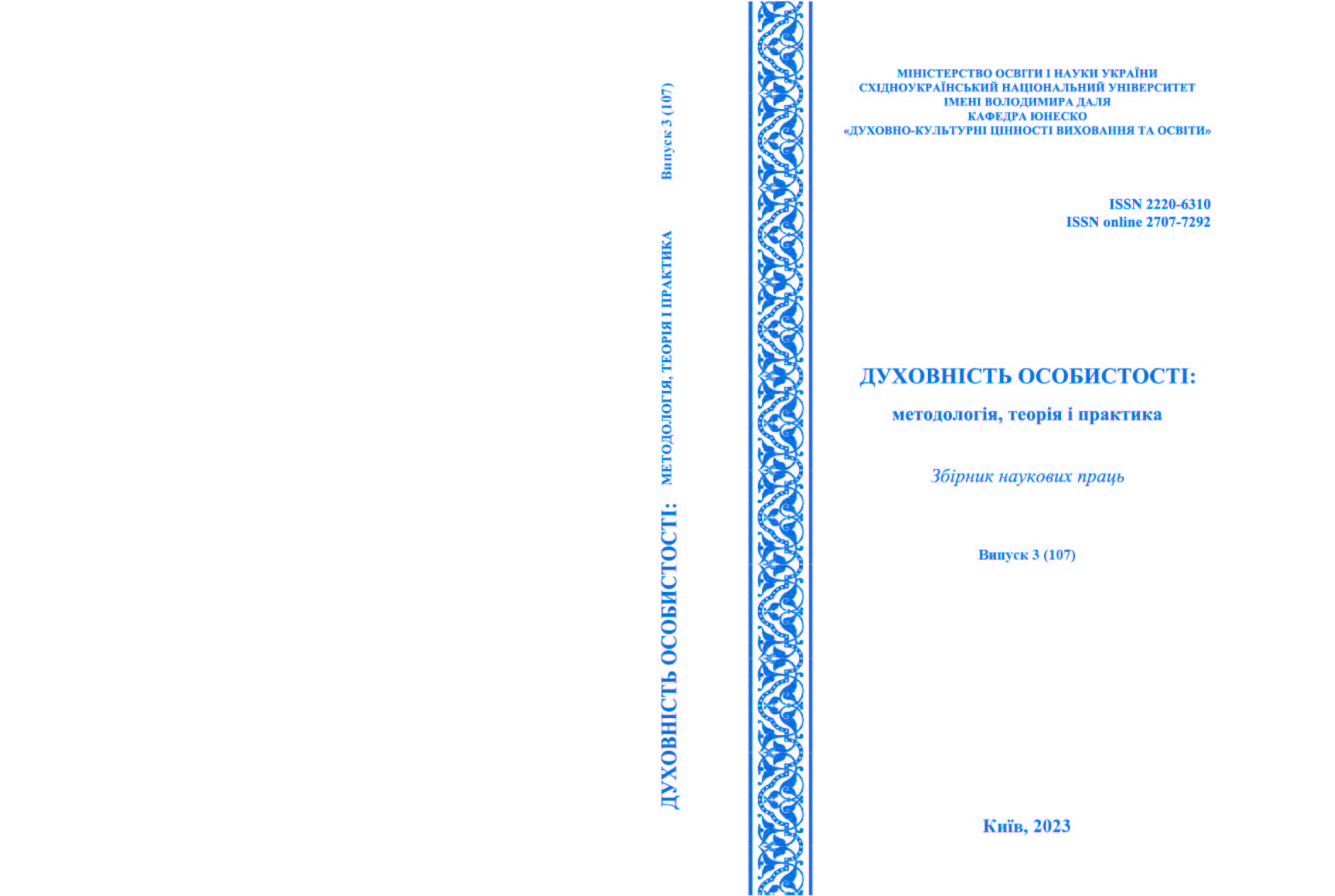CIVIC SOLIDARITY OF FUTURE TEACHERS AS A PSYCHOLOGICAL AND PEDAGOGICAL PROBLEM
DOI:
https://doi.org/10.33216/2220-6310/2023-107-3-82-91Keywords:
civic solidarity, civic education, social integration, cooperation, future teachersAbstract
This article is devoted to consideration of the issue of civic solidarity of future teachers. Civic solidarity is defined as an important component of civic education, which contributes to the development of an active civic position and responsibility in graduates of pedagogical institutions.
The article analyzes modern approaches to civic education and the formation of civic solidarity. In particular, pedagogic strategies, methods, and means that contribute to the education of civic consciousness and active participation in public life are considered. The role of the teacher in the process of formation of civic solidarity is analyzed. Attention is drawn to the importance of the teacher's personal example, their ethical values and professional competence as key factors in the education of civic consciousness. Specific pedagogical approaches and methods that can contribute to the formation of civic solidarity of future teachers are proposed. Such approaches include hands-on activities, social partnership, and use of interactive learning methods and game technologies. The importance of cooperation between educational institutions, public organizations and other stakeholders in the process of forming civic solidarity is emphasized. Such cooperation can ensure the creation of a favorable environment for the development of civic education and the support of practical initiatives in this area. It has been proven that the formation of civic solidarity of future teachers requires a comprehensive approach, taking into account both the personal qualities of the teacher, as well as pedagogical methods and partnership with society. Only through joint efforts can we achieve positive changes in civic consciousness and promote the development of civic solidarity among future teachers.

